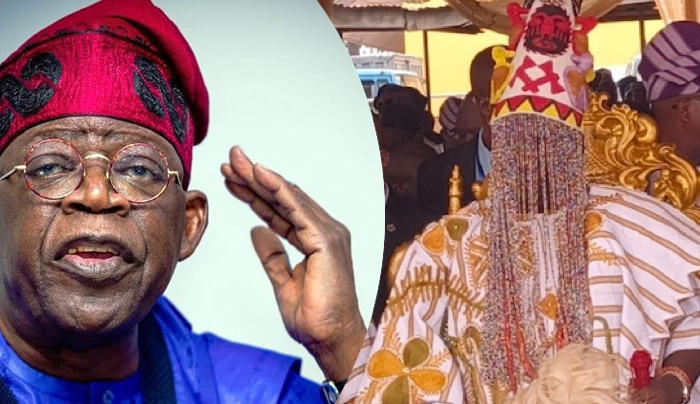The Federal Trade Commission on Thursday sued to block Microsoft’s $69 billion acquisition of the video game publisher Activision Blizzard, charging that the massive deal would allow the Washington tech giant to suppress its competitors in gaming.
According to the Washington Post, the lawsuit represented FTC’s most significant effort to rein in consolidation in the tech industry since prominent tech critic Lina Khan (D) became the commission’s chair and was expected to usher in a new era of antitrust enforcement characterized by a willingness to bring cases in court rather than pursue settlements with companies.
The case signaled a broader strategy at the agency to bring cases against deals that may pose competitive threats in the future, especially in nascent gaming markets.
The lawsuit was issued same day that a trial began in San Jose, California, in an FTC lawsuit against Facebook parent company Meta over its acquisition of the virtual reality company.
The agency has argued that if the companies could be kept separate, they would push each other to develop more features and attract more users, benefitting competition in the future.
The FTC lawsuit against Microsoft could foil the company’s ambitions to become a heavier hitter in gaming frontiers. Activision is the owner of massively popular titles like “Candy Crush” and “Call of Duty,” and its acquisition could bolster Microsoft in its competition with Japanese console makers Nintendo and Sony.
The commission voted yesterday on a party-line vote to issue the lawsuit in administrative court, with the three Democrats in favor of the complaint and one Republican against it.
Microsoft has not seen such a serious regulatory threat to its business in more than two decades, when the Department of Justice brought a landmark antitrust lawsuit against the company that ensnared it in years of legal battles.
After that case was settled in 2002, Microsoft had largely avoided the antitrust glare focused on tech rivals including Facebook, Google, Apple and Amazon — until the proposed Activision acquisition, the largest deal in Microsoft’s history. (Amazon founder Jeff Bezos owns The Washington Post).
Trustbusters are bypassing the biggest tech company of them all
Microsoft President Brad Smith signaled that the company would fight the lawsuit, saying in a statement that the company has “been committed since Day One to addressing competition concerns.”
“While we believed in giving peace a chance, we have complete confidence in our case and welcome the opportunity to present our case in court,” Smith said.
Since announcing its intention to buy Activision in January, Microsoft has announced a series of policies and arrangements intended to show regulators that the deal would not give it an unfair advantage in the gaming market or harm workers.
On Tuesday, as it was apparent the agency was nearing a decision on whether or not to block the deal, Microsoft announced that it would bring the Call of Duty franchise to Nintendo Switch, a rival of Xbox. It previously had said it would make “Call of Duty” available on rival Sony’s Playstation.
The FTC moved to block the deal a day after Microsoft staff met with agency representatives to discuss the lawsuit, according to a person familiar with the meeting, who spoke on the condition of anonymity to discuss a private meeting. Smith said the company offered “proposed concessions” to the agency earlier this week.
Activision currently makes its popular games available to 154 million monthly active users around the world on a variety of video game consoles, computers, phones and tablets, according to an FTC news release about the complaint.
But the FTC alleges that if the deal were to close, that could change. Microsoft would have the ability to thwart competitors by withholding these games from competing game systems entirely, or by manipulating pricing and degrading game quality on rival consoles.
The lawsuit warned the deal could not only give Microsoft an upper hand in consoles, but also an unfair advantage in more nascent gaming, such as subscription gaming and cloud gaming, according to an FTC official, who spoke on the condition of anonymity to discuss the agency’s argument.
The FTC argued that this deal could dampen innovation in these more nascent gaming markets, the person said.
Microsoft’s gaming business Xbox made $3.6 billion in the quarter ending in September.
Xbox consoles trail behind both rival Japanese console makers Sony and Nintendo companies in sales, the company told a U.K. antitrust regulator in October. Microsoft has a record of acquiring gaming content and then using it to squash competition from rival console makers, according to the FTC. The agency cited Microsoft’s acquisition of game developer Zenimax, and it says that the company’s subsidiary made titles including Starfield and Redfall exclusive to Microsoft devices despite previous assurances to European regulators.
“Microsoft has already shown that it can and will withhold content from its gaming rivals,” said Holly Vedova, the FTC’s Bureau of Competition director, said in a news release. “Today we seek to stop Microsoft from gaining control over a leading independent game studio and using it to harm competition in multiple dynamic and fast-growing gaming markets.”
The European Union announced last month that it had opened an inquiry into the deal, warning that Microsoft “may foreclose access” to Activision’s games.
Follow us on:

















